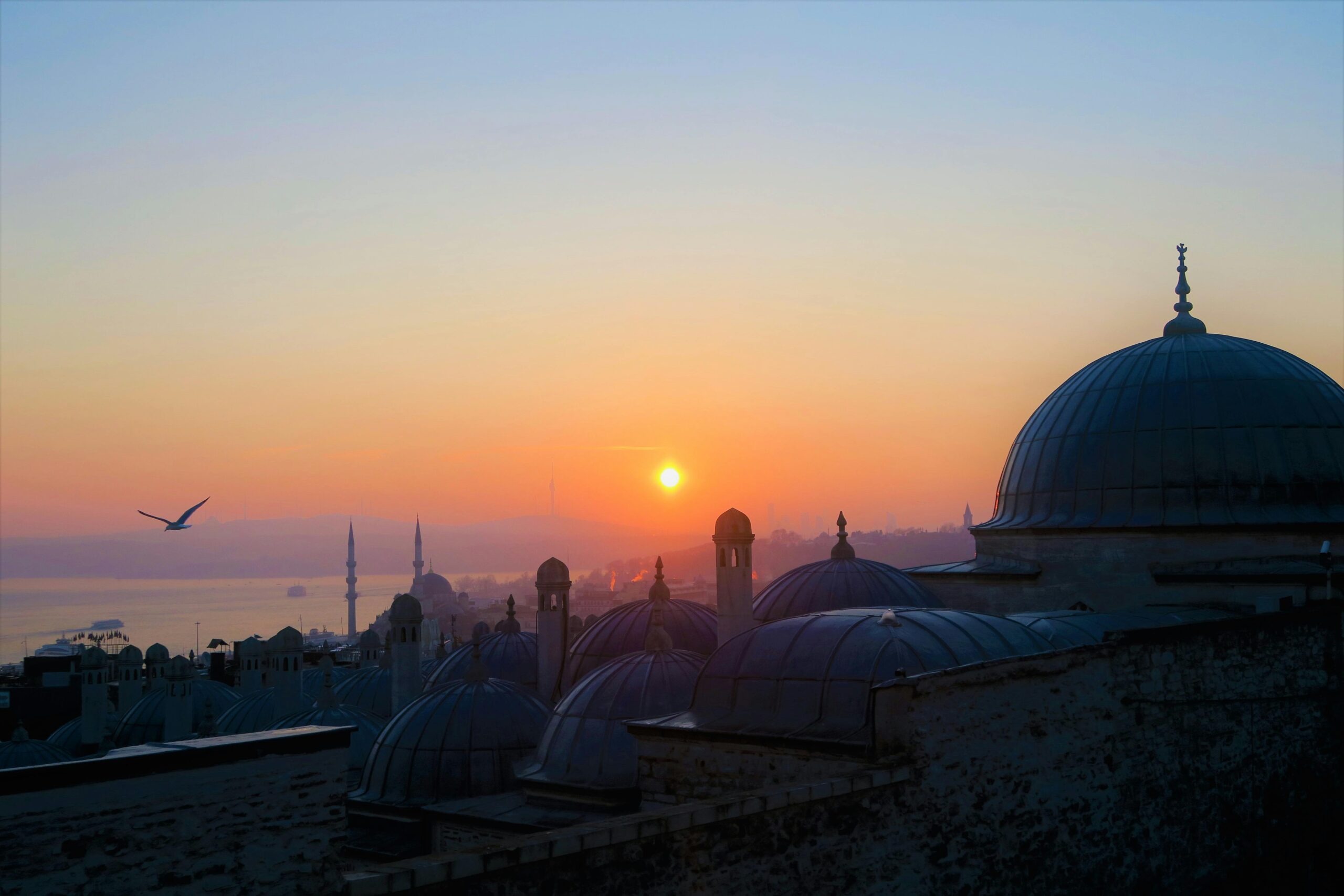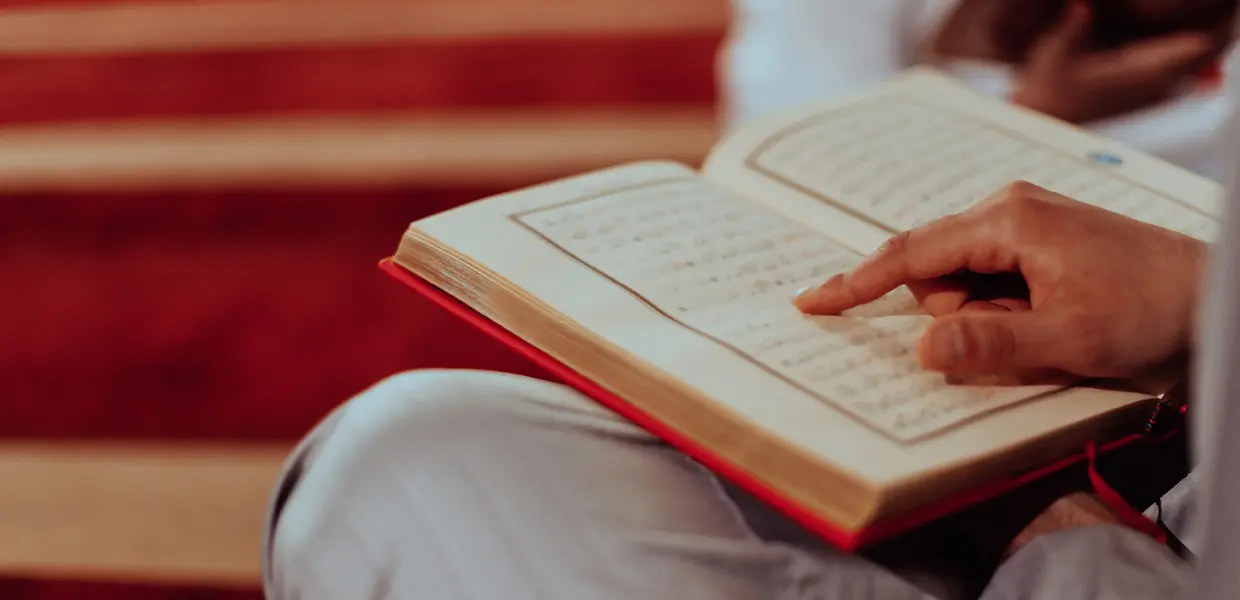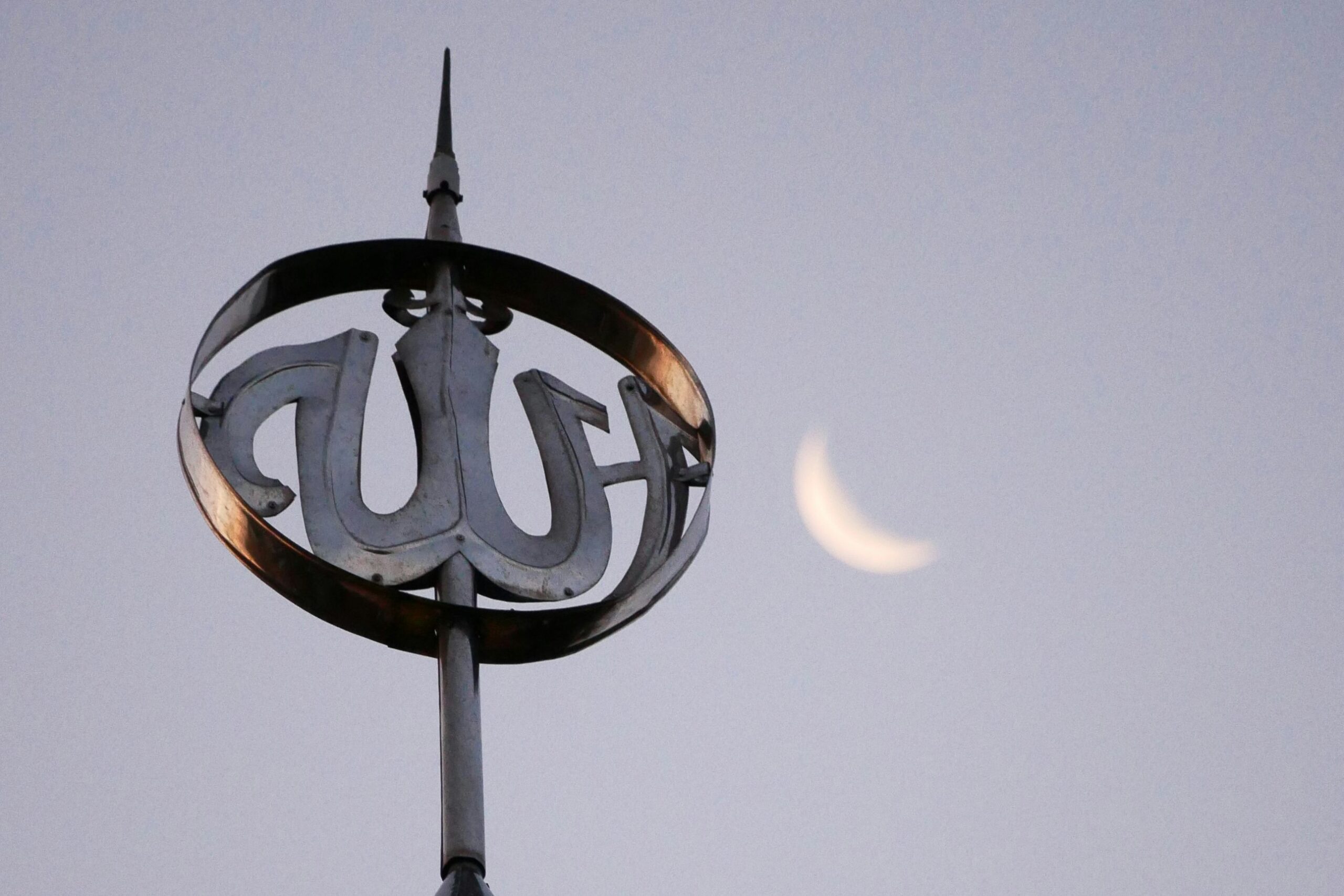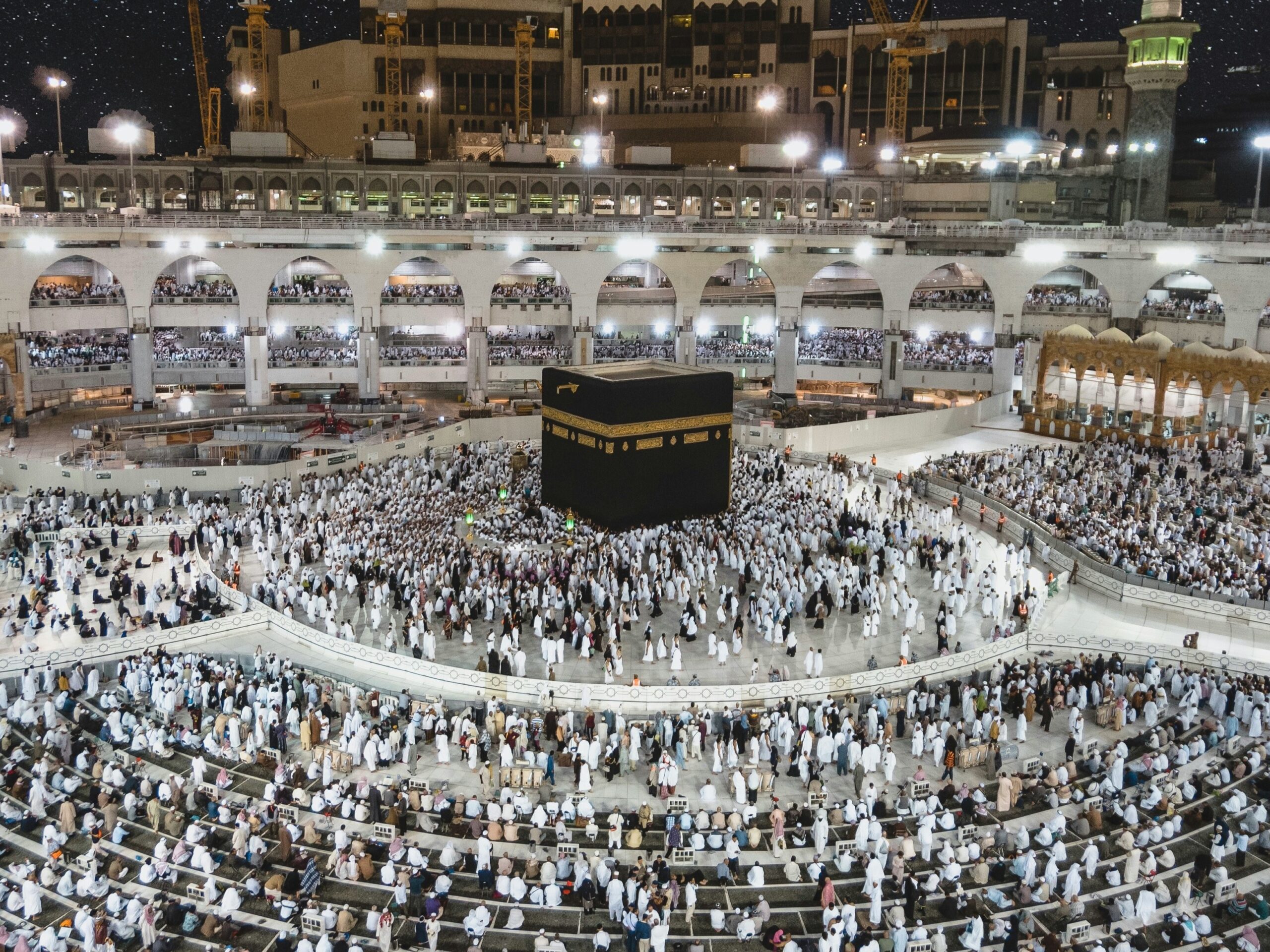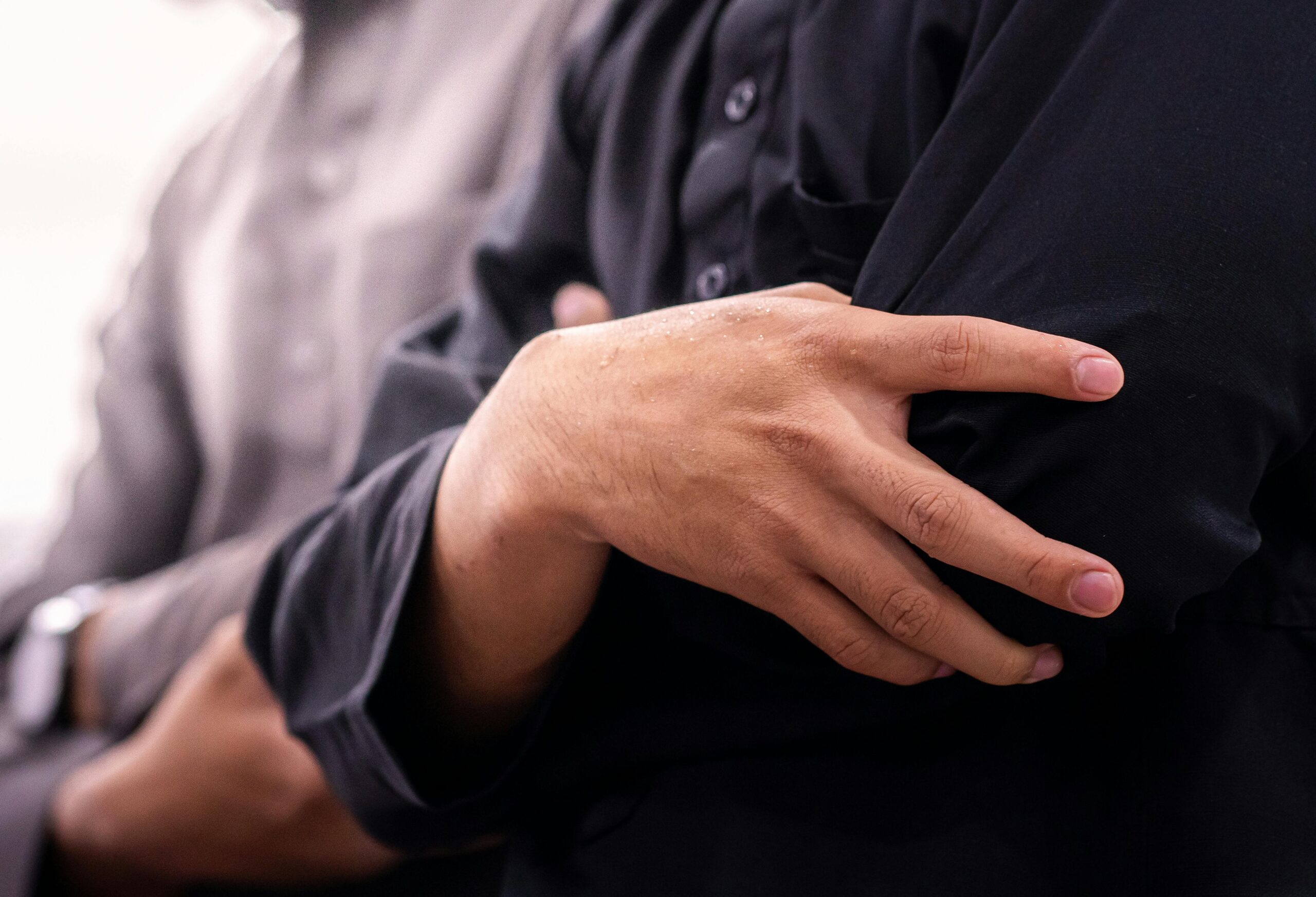
03.27.25
How to Pray Taraweeh
Taraweeh (Tarawih) is a night prayer performed during Ramadan. It is prayed in sets of 2 until completion, which can be at 8, 12 or 20 raka’at. The act of worship can also pardon the past sins of a believer.
The Prophet Muhammad (ﷺ) said:
“Prayers at night are offered in two followed by two. Then, if you fear dawn will come, pray witr with one.”
Hadith | Al-Bukhari & Muslim
Here’s one variation, with a simple step-by-step breakdown of how to pray Tarawih:
- Pray 4 raka’at Fardh of Isha
- Pray 2 raka’at Sunnah of Isha.
- Set intention to start praying Tarawih/qiyam.
- Pray the first 4 raka’at of Tarawih, 2 raka’at at a time.
- Take a short break after each interval of 4 raka’at.
- Pray another 4 raka’at of Tarawih.
- Rest.
- Either end Tarawih here or pray the remainder until 8, 12 or 20 total raka’at are reached.
- End the night with Witr prayer.
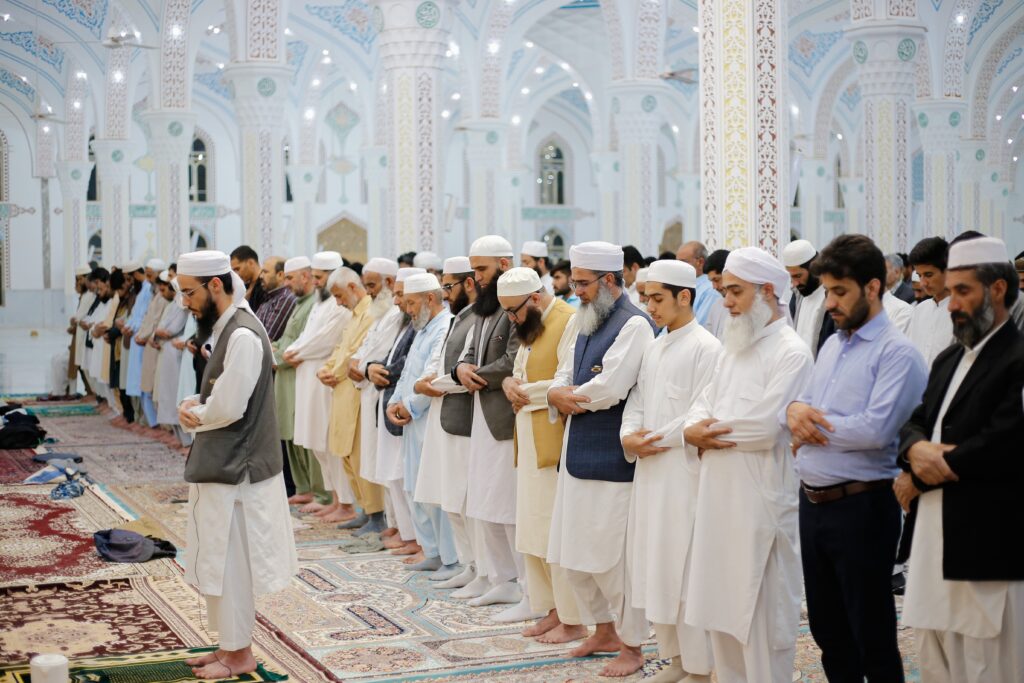
What is Taraweeh (Tarawih)?
Meaning rest or relaxation, Tarawih is a voluntary prayer performed after the evening prayer, Isha, every single night during Ramadan.
As it is a highly recommended Sunnah, mosques across the world hold congregational Tarawih prayers for men and women every night of this blessed month.
The Messenger of Allah (ﷺ) said:
“He who observes optional prayer (Tarawih prayers) throughout Ramadan, out of sincerity of Faith and in the hope of earning reward will have his past sins pardoned.”
Hadith | Al-Bukhari and Muslim
How many raka’at are in Tarawih?
Taraweeh, like other voluntary prayers, is prayed in sets of 2 raka’at at a time with the ability to rest after every 4 raka’at.
When attending Taraweeh at a masjid, the most important aspect is to finish praying with the Imam regardless of the number of raka’at he prays and not leaving early. The number of raka’at prayed can differ from mosque to mosque. So it’s best to check beforehand to better prepare yourself.
When is Taraweeh performed?
Taraweeh prayer is observed at night. It can be prayed anytime after the obligatory Isha prayer but before Witr, as the Witr prayer is the last prayer of the night.
Can Taraweeh be performed at home?
Yes, Taraweeh can be performed at home. In fact, the Prophet Muhammad (ﷺ) performed most of his Taraweeh prayers at home. However, it is highly encouraged to be performed at the mosque for men as the reward is higher.
Du’a to recite during Tarawih
It’s encouraged to increase your supplications and remembrance of Allah (SWT) during Taraweeh. There isn’t a specific du’a that must be recited, but you can use this opportunity to ask Allah for forgiveness, guidance, and blessings. A commonly recited du’a for seeking forgiveness is:
‘Allahumma innaka afuwwun tuhibbul afwa fa’fu anni’
اللَّهُمَّ إِنَّكَ عَفُوٌّ تُحِبُّ العَفْوَ فَاعْفُ عَنِّي
O Allah, You are all Forgiving and love forgiveness, so forgive me.
This du’a is particularly powerful during Ramadan, as it is a month of mercy and forgiveness. You can also make personal du’as in your own language to connect with Allah sincerely.
Reciting the Qur’an during Taraweeh
Taraweeh is a wonderful opportunity to connect deeply with the Qur’an during Ramadan. Some mosques and homes follow the tradition of completing one Juz (chapter) each night, inspired by the practice of the Prophet Muhammad (ﷺ).
It was narrated from ‘A’isha that Fatimah, the daughter of Prophet Muhammad (ﷺ), said:
He [the Messenger of Allah (blessings and peace of Allah be upon him)] told me: Jibreel used to review the Qur’an every year with him once or twice, but this year he reviewed it with him twice. He said: “I think that my death has drawn near, so fear Allah and be patient, for what a good example I am for you.”
Hadith | Muslim
While completing the Qur’an during Taraweeh is a great goal, it is not compulsory. You can recite any surahs you know, whether long or short. If needed, you may also hold a Qur’an (mushaf) to read during prayer, according to the Hanbali, Maliki and Shafi’i schools of thought.
Ramadan is the month of the Qur’an, so focus on sincere recitation and reflection. Whether you recite a little or a lot, each effort brings you closer to Allah (SWT).
Find out more about the holy month of Ramadan here.

